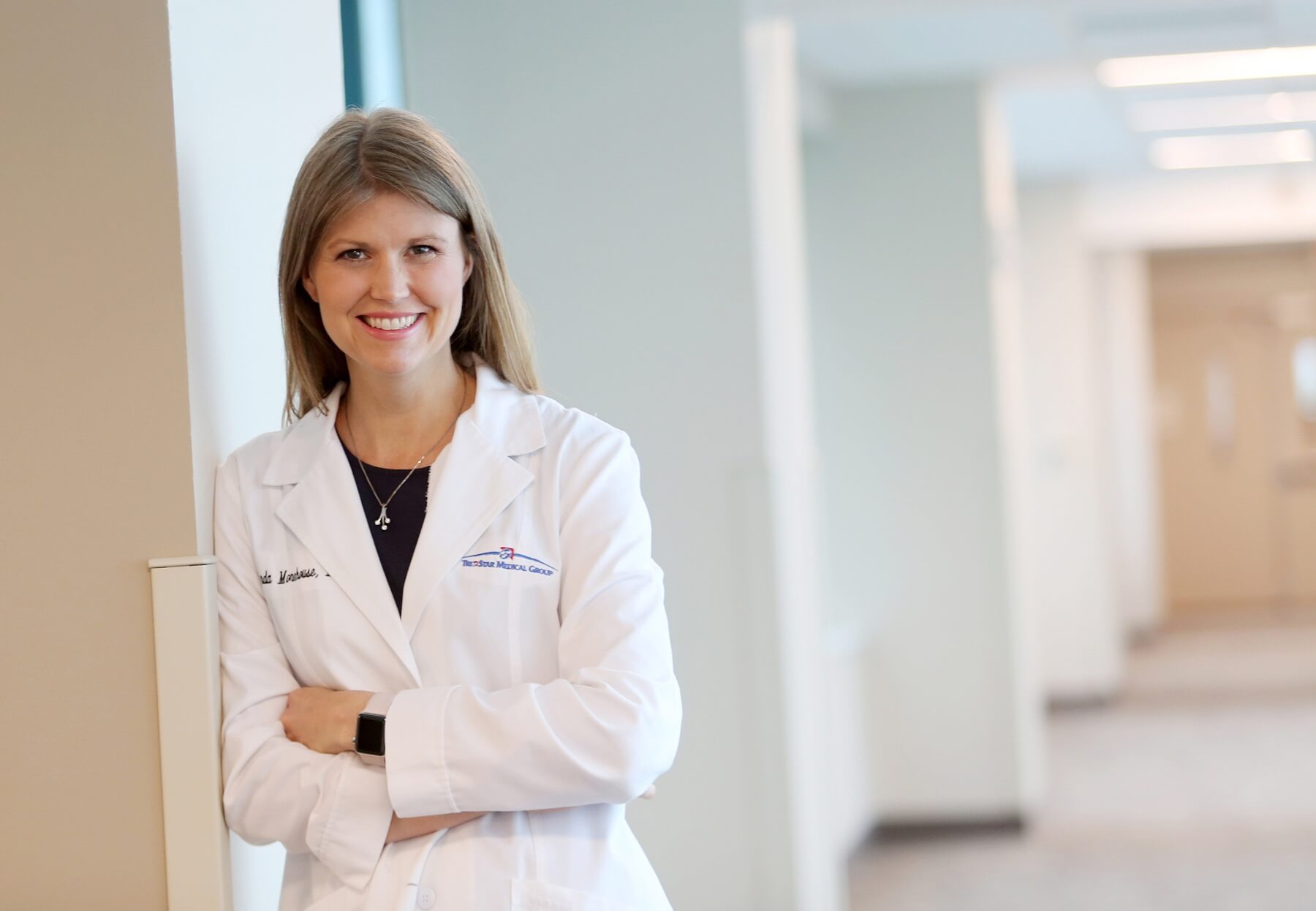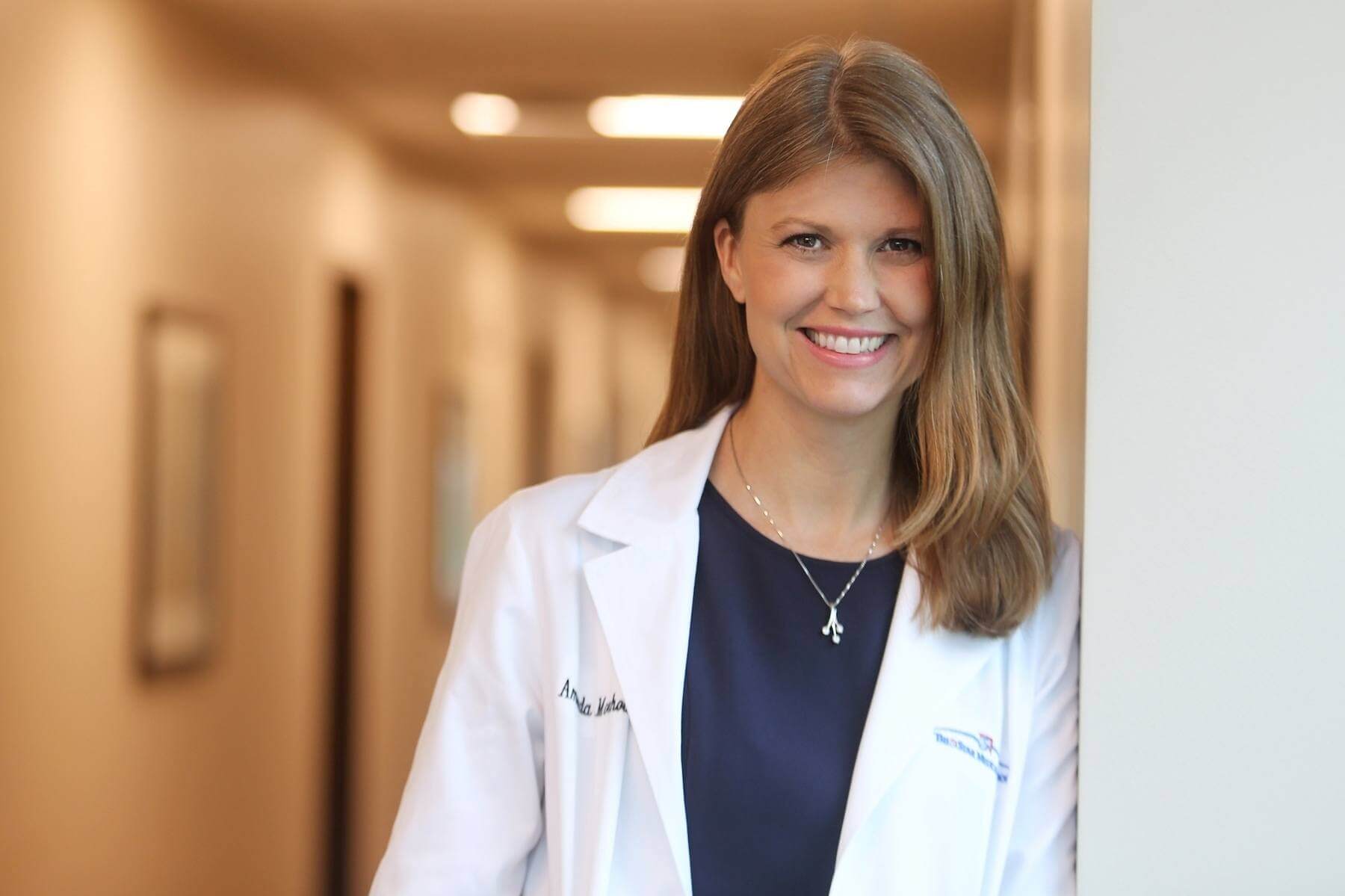Eight months ago, TriStar Summit Medical Center welcomed a distinguished physician and breast surgeon, Dr. Amanda Morehouse. Dr. Morehouse has been practicing medicine for nine years, and a desire to make a difference in the world of science motivated her decision to become a doctor. After eight years in private practice in Atlanta, GA, Dr. Morehouse and her family relocated to join TriStar Medical Group at TriStar Summit. Her primary focus as a breast surgeon is cancer, and her gentle demeanor paired with her wealth of knowledge make her a reliable resource for patients. Dr. Morehouse is joining a team of physicians dedicated to making TriStar Summit the best hospital, and in the short time she has been here, her impact has been apparent. We look forward to seeing all she will accomplish. Meet our newest FACE of TriStar!

How did your medical career begin, and why did you choose to specialize in breast surgery?
I was working in research before I decided to go to medical school — I thought I was going to teach, but it felt arbitrary, and I wanted to apply my scientific knowledge to make a difference in a tangible way. The research, for the human genome project, was making a difference, but I wanted to see the effects of science more quickly. Surgery was a field where I could see immediate changes and differences. In breast surgery, you have the opportunity to develop relationships with your patients; in other surgery, you don’t have that long-term relationship with patients.
What important issues in breast surgery and cancer do you hope to address in your tenure at Summit?
One thing I am interested in is equality in treatment. Everyone should have access to the same quality of care; the outcome shouldn’t be different based on who you are, what you look like, what your job is or where you live.
One of the reasons I came to TriStar is because we reach such a large area, so you get to see people from everywhere — from rural Tennessee and the city, and people of different backgrounds and education levels.
What do you see for the future of breast surgery?
Breast surgery is playing less of a role in breast cancer treatment. It remains the definitive treatment, but it is becoming less extreme and less disfiguring. That is rapidly evolving. When you only had one tool, which was surgery, you had to remove everything — the muscle, the breast and lymph nodes. That is a disfiguring and debilitating surgery. As we learn more about breast cancer, and more about other treatment options, it allows the surgery to be less aggressive. Women commonly fear they need the same surgery their grandmother had.
What are other common misconceptions around breast surgery and breast health?
Misconceptions are that mammograms are preventative, that men don’t get breast cancer, that deodorant and underwire bras cause breast cancer, that breast cancer is life-threatening or life-limiting — it usually is not. Most breast cancer patients live happy, full lives after their treatments.

What preventative measures can women take when it comes to breast cancer?
You cannot control your genetics, but there is a lot of information about a healthy lifestyle and how it affects your cancer risk. Obesity, especially for post-menopausal women, increases the risk of cancer by 20-40%, and it is estimated that about 10% of all cancers are attributed to obesity. Of people who are diagnosed with breast cancer, those who are obese may have a worse outcome, including higher risk of complications such as lymphedema, higher risk for progression or lower survival rate.
Also, not smoking, not excessively drinking and exercising — there may be something inherent that happens with exercise that improves your immune system’s ability to fight cancer cells.
What advice do you have for caring for loved ones going through treatment?
One thing to keep in mind is that everyone’s breast cancer is different. Listen, because their options are probably different than the last friend. Help support them, and help them explore their options within the framework of what their physicians gave them. The treatments are becoming more individualized, and while everyone’s intentions are good in sharing what they know, whatever they’ve heard might not apply to the next friend.
While people are going through treatment, bring them healthy meals, help get them out of the house, help them get moving, and help them maintain a positive mental state. Do something that is supportive, and listen.
What is a top challenge you face as a breast surgeon, and how do you deal with it?
From a professional standpoint, one of the biggest challenges is the rapidity at which treatments are changing and how individualized treatments are becoming. It is an intellectual challenge, but that keeps it interesting and requires a team approach that includes the patient.
On the personal side, there is a reason for nearly everything I do, and I am not always able to communicate that efficiently, so I have trouble delegating tasks. For example, letting people help me make phone calls or putting the dressings on. I like my dressings to be a certain way based on feedback from patients over the years, and it’s hard to convey all of that information.

Who are your female mentors?
There were not a lot of women surgeons who were also moms when I was going through training. There was one woman in my program who was very unapologetic for her commitments to her family and where her priorities stood. She made it apparent to me that you can be good at both. You don’t have to choose.
Personally, my sister and my cousin keep me grounded. I can always count on them to call me out when I am being ridiculous and lift me up when I am losing confidence.
When you aren’t working, where can we find you?
Chasing my kids around. You can find us at the soccer field, at the pool, at ballet recitals or — this afternoon — at the zoo.
As a surgeon, mother of two and wife to a physician, what’s your secret to success (and surviving)?
I don’t think there is a secret, and it isn’t always success. Some days, if everyone survives the day, I feel like we won. It is all trial and error. If something is not working for our family, we explore what the issue is and what changes we can make.

Thank you, Dr. Morehouse, for sharing your insight and advice. And thank you to Leila Grossman of Grannis Photography for the beautiful photos. To be referred to Dr. Morehouse, or to schedule an appointment, head HERE.
This article is sponsored by TriStar Health.



















